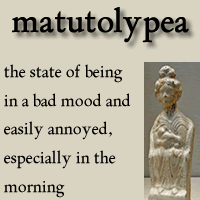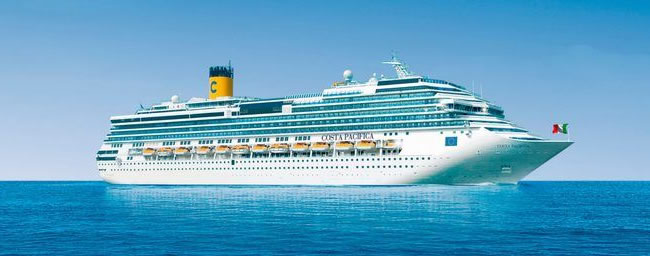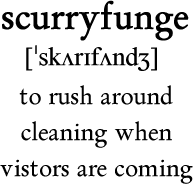
Here’s a recording in a mystery language.
Can you identify the language, and do you know where it’s spoken?

Here’s a recording in a mystery language.
Can you identify the language, and do you know where it’s spoken?

Do you suffer from matutolypea?
If you do, then you are in a bad mood and easily annoyed, especially in the morning, or ill-humoured and downright obnoxious first thing in the morning [source].
An example of how to use it: “The secret is not to talk to him at all until he’s been awake for at least an hour. Wait till the matutolypea subsides.” [source]
Matutolypea comes from the Latin Mātūta, the Roman goddess of morning or dawn [source] (pictured above), and the Greek λῠ́πη – lúpē (sadness, suffering, affliction) [source], so could also be translated as “dawn saddness”.
I learnt this word from an episode of the podcast Something Rhymes with Purple.
Those you suffer from matutolypea might be said to have got up on the wrong side of the bed or woken on the wrong side of the bed. According to a superstition that dates back to the Romans, the wrong side of the bed is the left side, as the left is associated with bad luck and is decidely sinister in Latin. The Roman emperor Augustus Caeser apparently always got up on the right side of bed beacuse of this superstition [source].
According to the Grammar Monster, “an ancient superstition that evil spirits lay on a certain side of the bed. A person who wakes up and gets out the “wrong” side of the bed disturbs the evil spirits and attracts their wrath, putting the person in a foul mood.”
Even though I get up on the left side of my bed every morning, as the right side is against a wall, I rarely suffer from matutolypea.
Are there any words, phrases or sayings in other languages about being miserable in the morning?

On 18th April 2020 the good ship Costa Pacifica will set sail from Barcelona with 100 polyglots on board. They will be taking part in the first Polyglot Cruise, which is organized by Kris Broholm of the Actual Fluency Podcast.
The cruise is open to anybody interested in languages, whether you consider yourself a polyglot or not. During the week-long event there will be presentations, discussions and workshops every day, and plenty of time to enjoy the ameneties of the ship, and to explore the places it visits, including Palma (Mallorca), La Valetta (Malta), Catania and Genoa (Italy).
For a shared cabin it costs US$897 (about €788 / £704) for the week, which includes participation in the polyglot activities, accommodation, meals, entertainment, and use of other facilities on the ship. It’s more if you want a single cabin, or a travelling as a couple or family.
This may sound like a lot, but I think it’s worth it, and I signed up yesterday. I’ll giving a short presentation on the old Mediterranean Lingua Franca (Sabir), a pidgin that was used by sailors and others around the Mediterranean from about the 11th century to the 19th century. It was based particuarly on Venetian, Genoese, Catalan and Occitan, and also contained words from French, Spanish, Portuguese, Italian, Greek, Turkish, Arabic and Berber.
If you book within the next 5 days, you can enjoy early bird prices, and if you use the offer code OMNIGLOT, you can get a further US$50 discount.
If this doesn’t appeal, maybe you’ll be interested in other polyglot events.
Note: as an affiliate, I will get a small commission if you register via a link in this post, or on my events page.

Here’s a recording in a mystery language.
Can you identify the language, and do you know where it’s spoken?

This week I learnt some interesting weather-related phrases in Swedish on Memrise, including norrut (up north / northward), söderut (down south / southward), österut (out east / eastward) and västerut (out west / westward).
Examples of how they are used include:
In Swedish they all have the ut (out) in them, so more literal translations of norrut and söderut would be “out north” and “out south”, or even “north out” and “south out”.
These sound wrong in English, at least to my ears. To me north is up and south is down, so it makes sense to say up north and down south, although I’m not sure why we say out east/west. Does anybody know? Are there other ways to refer to directions?
In Irish, and other Gaelic languages, the words for directions change depending on whether you’re in the north, going north, coming from the north, and so on. For example:

If someone accused you of scurryfunging, would you have any idea what they were talking about?
Scurryfunge is apparently an American dialect word meaning cleaning and tidying your house frantically before visitors arrive. That is according to the podcast Something Rhymes with Purple, which I discovered today. It’s a podcast about words and language by Gyles Brandreth and Susie Dent.
According to Definition Of, scurryfunge is an Old English word meaning “to rush around cleaning when company is on their way over”.
According to the Urban Dictionary, scurryfunge means “A hasty tidying of the house between the time you see a neighbor and the time he/she knocks on the door”, and comes from John Gould’s Maine Lingo: Boiled Owls, Billdads, and Wazzats, 1975.
According to Haggard Hawks, scurryfunge means “to hastily tidy a house”. It first appeared in written English in the late 18th century, and originally meant to beat or lash, and later to rub or scrub clean. By the early 20th century it was only used in a few regional dialects, and the meaning had changed a bit.
According to Wordfoolery, back in the 19th century scurryfunge meant “to scour for marine curiosities”, and is still used in Newfoundland.
According to Dictionary of Newfoundland English, scurryfunge means “to lash tightly; to do anything briskly; to work or walk hurriedly; to scrounge, cadge or wheedle; to clean thoroughly, scour; to scold, reprove”.
So now we know what it means, do you scurryfunge?
I do sometimes when I’m expecting visitors, but my house is usually reasonably tidy. Or at least any mess is confined to certain areas.
Are there similar words in other languages?

Here’s a recording in a mystery language.
Can you identify the language, and do you know where it’s spoken?
Imagine you’re driving through the English countryside and you get a bit lost. You might spread out a map to find out where you are, and when you reach your destination, you might decide to have a picnic, or a nice spread (meal).
After spreading out a rug, or even a bedspread, on the ground to sit on, you spread your legs a bit, then start spreading butter, cheese spread and other things on bread to make sandwiches.
After your picnic, maybe you and your companions spread out to explore the area. As you do so, you notice a farmer spreading muck on a nearby field, and another spreading seeds. You think they are growing genetically modified crops, and start spreading rumours about this. Before you know it the rumours turn into a double-page spread in the local newspaper, and you end up spreading fear and confusion.
The word spead can obviously be used in a variety of contexts and has various meanings. In French, however, there is a different word for most of these meanings:
Source: Reverso
On an episode of the Talk the Talk podcast that I listened to today, they discuss fossil words or, as presenter Daniel Midgely calls them, oxbows, which is a rather poetic and fitting name from them.
An oxbow lake is a part of a river that has got cut off from the main stream due to the changing course of the river, and a fossil word or oxbow is one that’s only used in one or two expressions, and is no longer part of the main stream language.
Some examples they gave include kith and kin, to and fro, and akimbo, as in arms/legs akimbo.
Other examples of fossil words / oxbows include:
Do you know others in English or other languages?

Here’s a recording in a mystery language.
Can you identify the language, and do you know where it’s spoken?